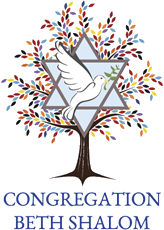From the earliest times, Judaism has faced the challenge of being in the Diaspora (in Exile), living as a sometimes oppressed minority, and maintaining the strength and beauty of our beliefs and practices – all at the same time.
Life in America has been no different. While America has generally been very good for Jews, we have been ‘Fiddlers on the Roof’ balancing our unique view of the world with the desire to live in peace with our neighbors.
The question of celebrating ‘secular’ national holidays is complicated by the origin of the holiday and how the meaning of the holiday has evolved.
St. Valentine’s Day was established by the Catholic Church in honor of a priest who defied authorities at the cost of his own life and continued to perform religious weddings. It was originally a religious holiday. Today, it celebrates Love. The same transition took place with St. Patrick’s Day, and, yes, Halloween (all Hallows Eve) the one day when those condemned souls are allowed to wonder the earth.
In the Talmud, non-Jewish religious holidays and secular holidays were divided into two categories – those which were idolatrous in their nature, and those which were just seen as foolish.
So what about Thanksgiving? Even though Thanksgiving Day had its roots in Protestant Christianity, there was no idolatrous basis to the holiday. In fact, Thanksgiving is based on our holiday of Sukkot, a time to thank the Divine for the bounty of our harvest and the opportunity to share it with those in need.
So, all along, it was acceptable to celebrate with our neighbors. Even Rabbi Joseph Solovietchik, founder of the Modern Orthodox Movement said that it was permissible to celebrate.
So gather together with family and friends. Eat more than any of us should. Bask in your love for each other, at least for that one day. And send out warm feelings to those who wanted to be with you but could not.
May our friends and family have a safe and joyous holiday.
B’Shalom
Rabbi Stanley Halpern
